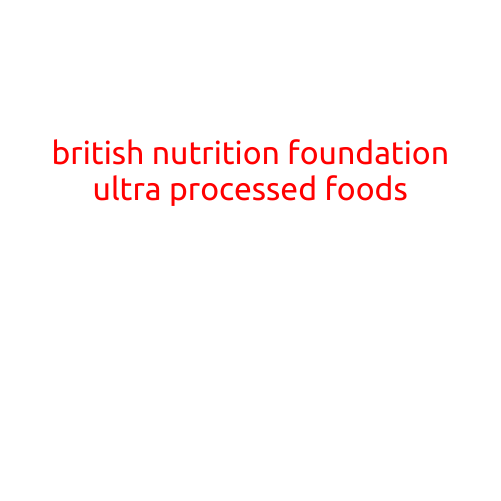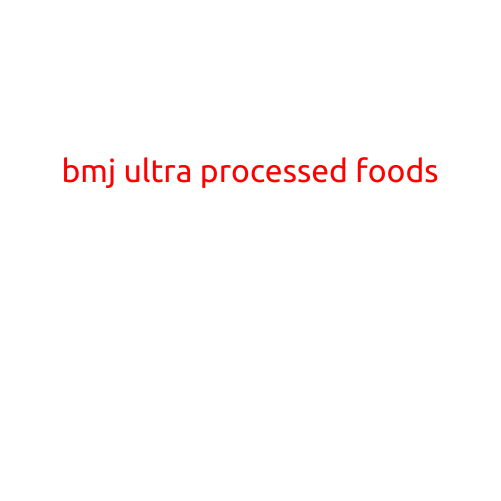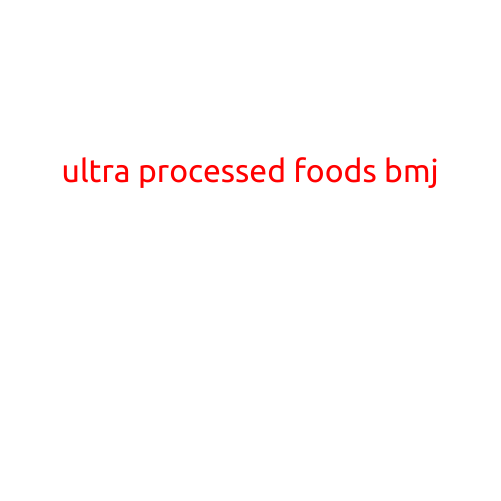
British Nutrition Foundation: Ultra-Processed Foods
The British Nutrition Foundation (BNF) is a leading authority on nutrition and public health in the UK. In recent years, the BNF has been at the forefront of the debate surrounding ultra-processed foods, a category of food products that have been linked to a range of negative health outcomes.
What are Ultra-Processed Foods?
Ultra-processed foods are products that have been highly processed and contain many ingredients that are hard to pronounce. Examples of ultra-processed foods include:
- Frozen meals and ready-made dishes
- Baked goods, such as cakes and pastries
- Sugary snacks, such as crisps and chocolate bars
- Cereals and meal replacement bars
- Instant noodles and soups
- Bread and pastry products that contain additives and preservatives
The Concerns about Ultra-Processed Foods
The BNF and other health experts are concerned about the impact that ultra-processed foods are having on our health. Research has shown that consumption of ultra-processed foods is linked to an increased risk of:
- Obesity and weight gain
- Type 2 diabetes
- Heart disease
- Certain cancers
- Cognitive decline
The Reasons for Concern
So, why are ultra-processed foods so concerning? There are several reasons:
- High added sugar content: Many ultra-processed foods are high in added sugars, which can lead to a rapid spike in blood sugar levels and an increased risk of chronic diseases.
- Lack of essential nutrients: Ultra-processed foods are often stripped of essential nutrients and fiber, leading to nutrient deficiencies and promoting chronic disease.
- High in salt and unhealthy fats: Many ultra-processed foods are high in salt and unhealthy fats, which can increase blood pressure and cardiovascular risk.
- Potential chemical contaminants: Some ultra-processed foods may contain chemical contaminants, such as artificial preservatives, flavor enhancers, and colorants, which can have unknown long-term effects on human health.
The BNF’s Recommendations
The British Nutrition Foundation recommends that individuals aim to consume a balanced diet that is rich in whole foods, such as fruits, vegetables, whole grains, lean proteins, and healthy fats. To reduce the consumption of ultra-processed foods, the BNF suggests:
- Plan your meals: Take time to plan your meals in advance to ensure you are eating a balanced diet.
- Cook from scratch: Cooking from scratch using whole foods is a great way to ensure you are getting the nutrients you need.
- Limit packaged foods: Try to limit your consumption of packaged foods and opt for whole foods instead.
- Read labels: Always read food labels and choose products that contain fewer and more recognizable ingredients.
Conclusion
The British Nutrition Foundation is clear: ultra-processed foods are a threat to our health. By educating ourselves about the risks associated with these foods and making informed choices, we can promote a healthy and balanced diet. Remember: a diet rich in whole foods is the key to a healthier, happier you.





